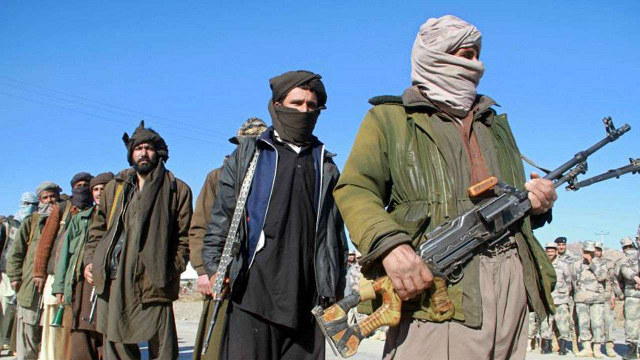The Afghan peace deal: not dead yet
The US and the Taliban have been in touch to resume the faltering peace process

A file photo of the Afghan Taliban (PHOTO: REUTERS)
But Trump changed his mind at the last minute, calling off the meeting as well as an agreement with the Taliban. The killing of a US soldier in one of the recent terrorist attacks in Kabul was cited as the main reason for the cancellation, although there might be other factors that actually played a part. Even US commentators have speculated if the killing of American serviceman was the reason, the Trump administration would not have entered into talks in the first place since this year alone at least 16 soldiers have been killed in Taliban attacks. So, what could be the real reason? One assessment was that some in the US perceived the imminent peace deal with the Taliban as a document of surrender. John Bolton, Trump’s National Security Adviser, staunchly opposed peace talks with the Taliban. Apparently, he succeeded in scuttling the meeting at Camp David. But Bolton’s unceremonious removal suggests that Trump is still interested in a peace deal.
In fact, there are indications that the US and the Taliban have been in touch to resume the faltering peace process. But whenever talks resume, the US pushes new preconditions. One may include the Taliban announcing a ceasefire and entering into direct talks with the Afghan government before signing a formal deal. The Taliban have so far resisted both these demands.
This new scenario will once again put the spotlight on Pakistan. It is an open secret that Pakistan has played a key role in facilitating the nine rounds of talks between the US and the Taliban in Doha. The positive role played by Pakistan to bring the Taliban onto the negotiating table was the main reason Trump had invited PM Khan to the White House in July.
The sudden deadlock in the peace process has now not only diminished hopes for immediate peace returning to Afghanistan but is also a setback for Pakistan at a time it wants a peaceful neighbourhood in the west in view of its brewing tensions with India over Kashmir. When on August 5, India revoked the special status of occupied Kashmir, there were suggestions that Pakistan must link its help on the Afghan peace with the US playing a more proactive role in Kashmir. But those at the helm, dealing with intricate matters dismissed such an idea since there is a feeling in the power corridors that the Afghan peace deal would benefit Pakistan as the absence of a political settlement would continue to provide India with a platform in Afghanistan to create trouble at the eastern and western fronts. Perhaps that’s why India, which is increasingly upset over being left out of the Pakistan-facilitated peace process, was quick to welcome Trump’s decision to call off the peace talks.
This means that Pakistan would do its best to salvage the talks by pushing the Taliban, using whatever leverage it has, to agree on a ceasefire or at least commit to reducing the level of violence. Peace prospects may look grim but given Pakistan’s strategic compulsions and Trump’s desperation to portray the lost war in Afghanistan as a victory, the Afghan peace deal is not dead yet.
Published in The Express Tribune, September 16th, 2019.
Like Opinion & Editorial on Facebook, follow @ETOpEd on Twitter to receive all updates on all our daily pieces.














COMMENTS
Comments are moderated and generally will be posted if they are on-topic and not abusive.
For more information, please see our Comments FAQ